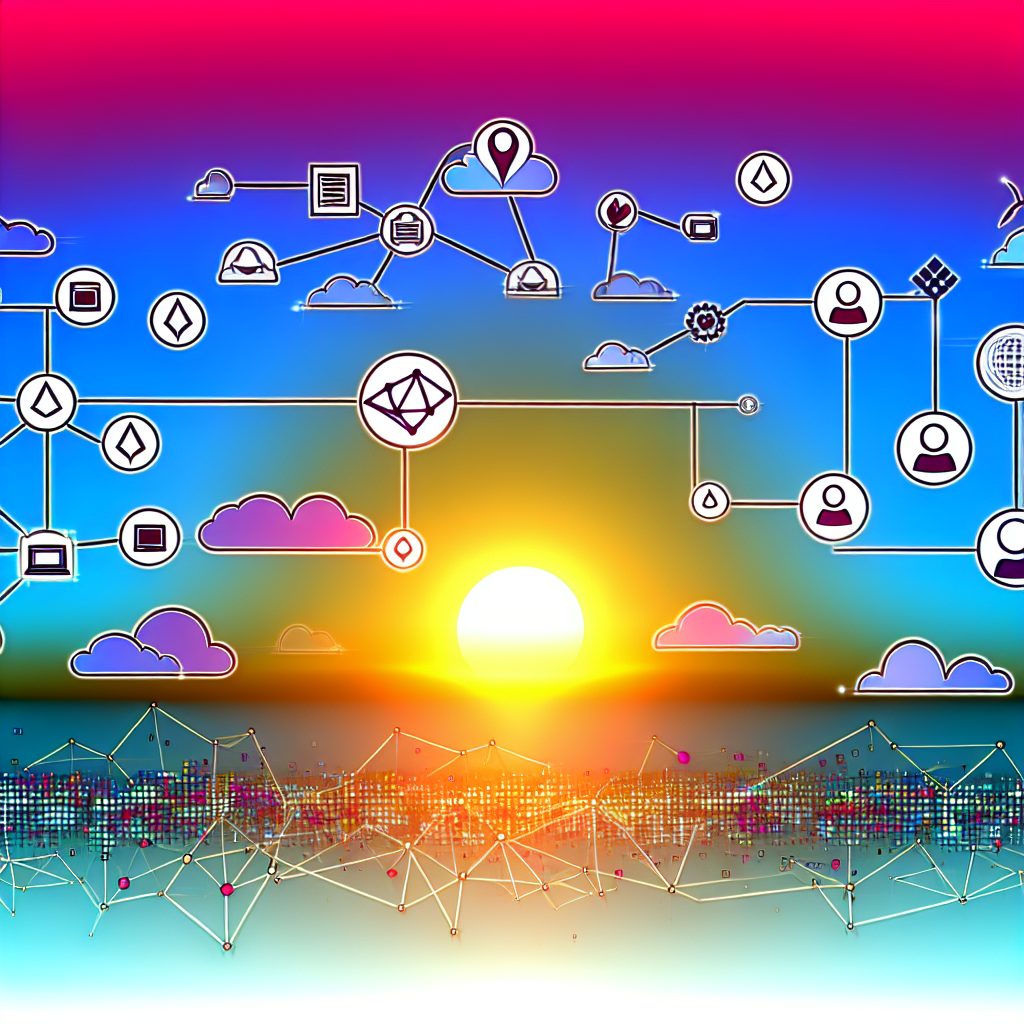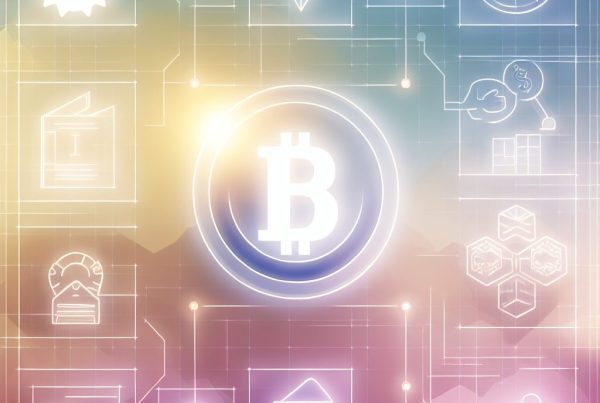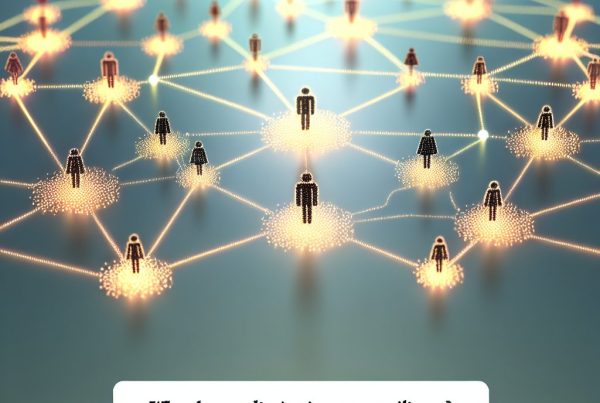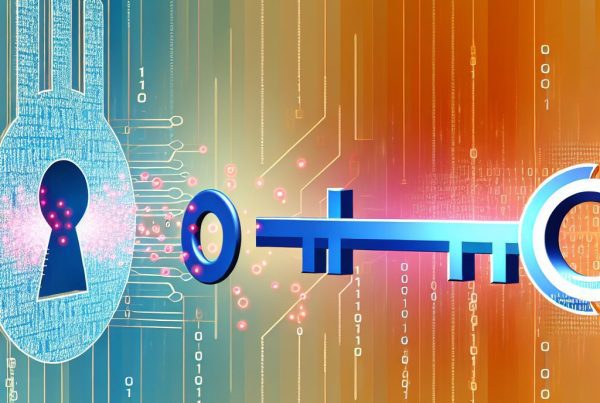DAOs Explained: The Future of Governance
Decentralized Autonomous Organizations, or DAOs, are revolutionizing the way we think about governance in the cryptocurrency industry. By leveraging blockchain technology, DAOs offer a new model for decision-making that is transparent, democratic, and efficient. This article delves into the intricacies of DAOs, their significance in the crypto space, and their potential to reshape governance as we know it.
What is a DAO?
A DAO is an organization represented by rules encoded as a computer program that is transparent, controlled by organization members and not influenced by a central government. DAOs are built on blockchain technology, which ensures that all transactions and rules are recorded on a public ledger, making them immutable and verifiable.
Key characteristics of DAOs include:
- Decentralization: No single entity has control over the organization.
- Autonomy: Operates independently of human intervention once deployed.
- Transparency: All transactions and rules are visible on the blockchain.
- Token-based governance: Members use tokens to vote on proposals and changes.
The Evolution of Governance Models
Traditional governance models often rely on centralized authorities, which can lead to inefficiencies, corruption, and lack of accountability. DAOs present a compelling alternative by distributing power among all stakeholders. This shift is particularly relevant in the cryptocurrency industry, where trust and transparency are paramount.
Historically, governance has evolved through various stages:
- Feudalism: Power was concentrated in the hands of a few.
- Democracy: Power was distributed among citizens, but often still influenced by elites.
- Decentralization: DAOs take this a step further by removing intermediaries entirely.
How DAOs Work
DAOs operate through smart contracts, which are self-executing contracts with the terms of the agreement directly written into code. These smart contracts govern the rules of the organization and automate decision-making processes.

The typical workflow of a DAO includes:
- Proposal Creation: Members can propose changes or initiatives.
- Voting: Token holders vote on proposals, with votes weighted by the number of tokens held.
- Execution: If a proposal passes, the smart contract automatically executes the decision.
Benefits of DAOs
DAOs offer numerous advantages over traditional governance structures:
- Increased Transparency: All actions are recorded on the blockchain, making it easy to audit.
- Global Participation: Anyone with internet access can participate, breaking down geographical barriers.
- Reduced Costs: By eliminating intermediaries, DAOs can operate more efficiently.
- Enhanced Security: The use of blockchain technology reduces the risk of fraud and manipulation.
Challenges Facing DAOs
Despite their potential, DAOs also face several challenges:
- Legal Recognition: Many jurisdictions do not recognize DAOs as legal entities.
- Security Risks: Smart contracts can be vulnerable to bugs and exploits.
- Voter Apathy: Low participation rates can undermine the democratic process.
- Token Concentration: Wealthy individuals can disproportionately influence decisions.
Real-World Applications of DAOs
DAOs are already being implemented in various sectors within the cryptocurrency industry. Here are some notable examples:
1. MakerDAO
MakerDAO is one of the most prominent DAOs in the DeFi space. It governs the DAI stablecoin, allowing users to create DAI by locking up collateral in smart contracts. Token holders vote on key decisions, such as collateral types and risk parameters, ensuring that the system remains stable and secure.
2. Aragon
Aragon provides a platform for users to create and manage their own DAOs. It offers tools for governance, fundraising, and collaboration, enabling organizations to operate autonomously without relying on centralized authorities.
3. MolochDAO
MolochDAO focuses on funding Ethereum development projects. Members contribute funds and vote on which projects to support, ensuring that resources are allocated effectively to benefit the ecosystem.
The Future of DAOs
The future of DAOs looks promising as more organizations recognize the benefits of decentralized governance. As technology advances and legal frameworks evolve, we can expect to see:
- Increased Adoption: More businesses and communities will adopt DAO structures.
- Improved Security: Enhanced smart contract auditing and security measures will mitigate risks.
- Legal Frameworks: Governments may begin to recognize and regulate DAOs, providing clarity and legitimacy.
- Interoperability: DAOs will increasingly interact with one another, creating a more interconnected ecosystem.
FAQs about DAOs
What is the main purpose of a DAO?
The main purpose of a DAO is to enable decentralized governance, allowing members to make decisions collectively without a central authority.
How do I participate in a DAO?
To participate in a DAO, you typically need to acquire its governance tokens, which allow you to vote on proposals and contribute to discussions.
Are DAOs legal?
The legal status of DAOs varies by jurisdiction. Some countries are beginning to recognize them as legal entities, while others have yet to establish clear regulations.
What are the risks associated with DAOs?
Risks include security vulnerabilities in smart contracts, potential for low voter participation, and the influence of wealthy token holders on decision-making.
Conclusion
DAOs represent a significant shift in how organizations can be governed, particularly within the cryptocurrency industry. By promoting transparency, decentralization, and community involvement, DAOs have the potential to create more equitable and efficient governance structures. As the technology matures and legal frameworks develop, we can expect DAOs to play an increasingly vital role in shaping the future of governance.
For more insights and updates on the cryptocurrency landscape, visit Bitrabo.
Disclaimer: This article is for informational purposes only and should not be considered financial advice. Always conduct your own research before making investment decisions.
The Crypto Watchlist of the Week 🔎
Subscribe to receive expert-curated projects with real potential—plus trends, risks, and insights that matter. Get handpicked crypto projects, deep analysis & market updates delivered to you.


